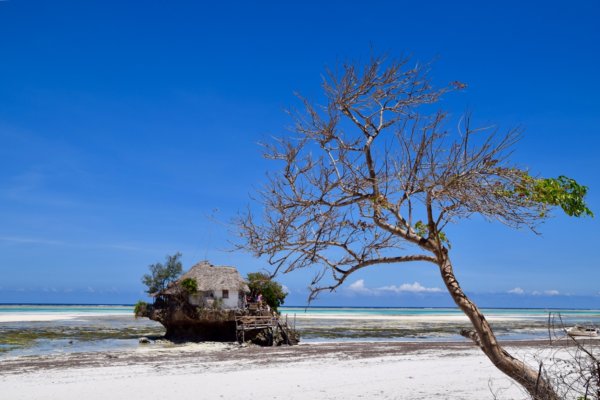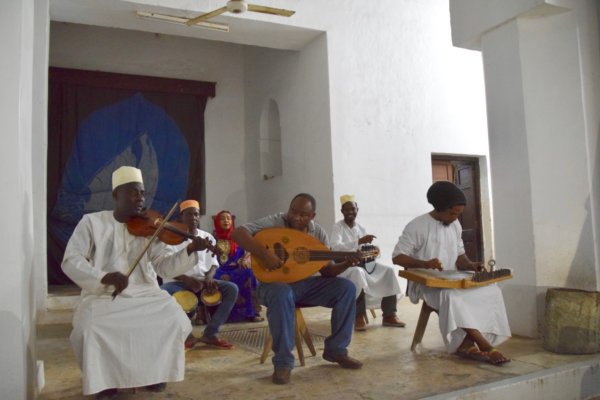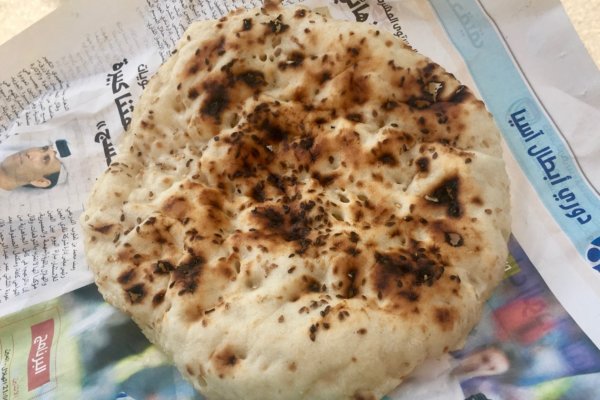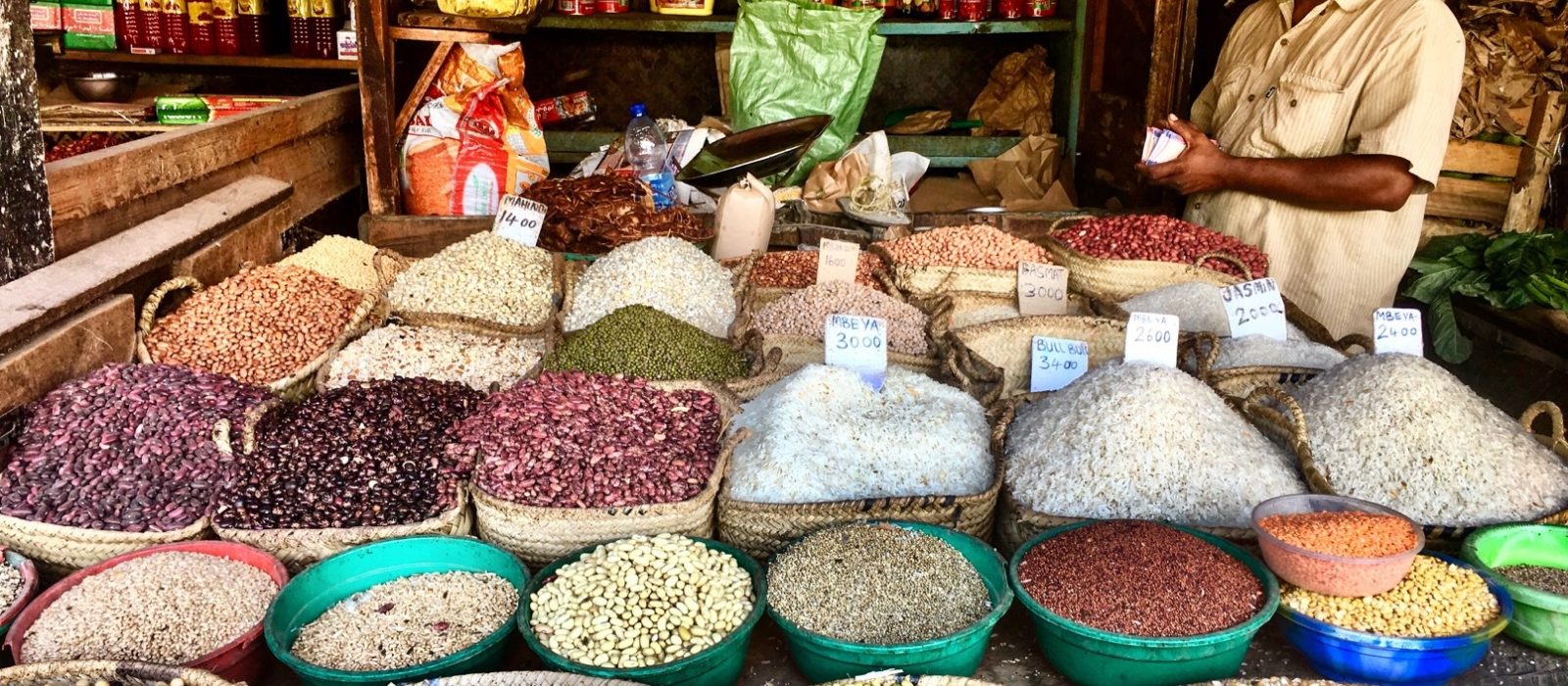
Zanzibar,
3 days
About Zanzibar
The island of Zanzibar boasts pristine white sand beaches, ubundant sunshine, exotic Swahili dishes, a hospitable people. In the historic Stone Town you’ll find Arabic and Swahili inluences, winding lanes with minarets, carved doorways and 19th century palaces. If your idea of a fun is to mix a culture with lazing on the beach then you just found your next destination!
Practical information
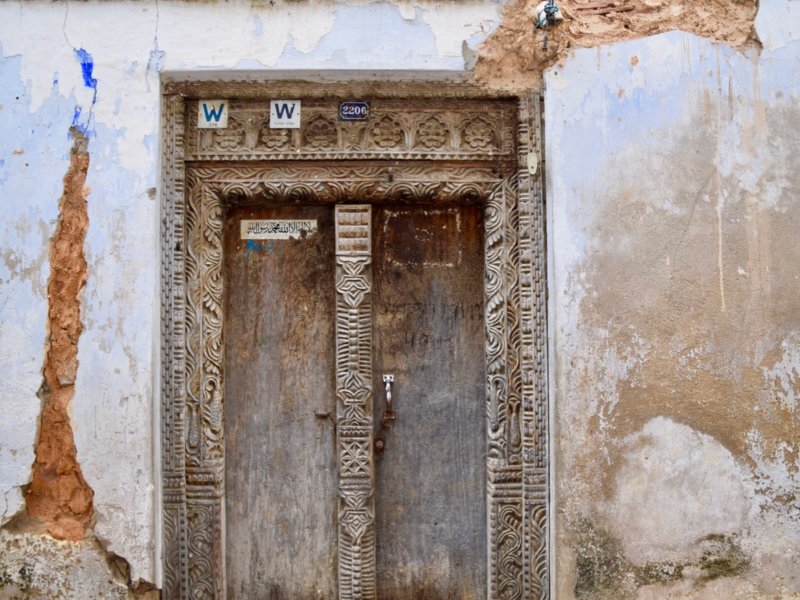
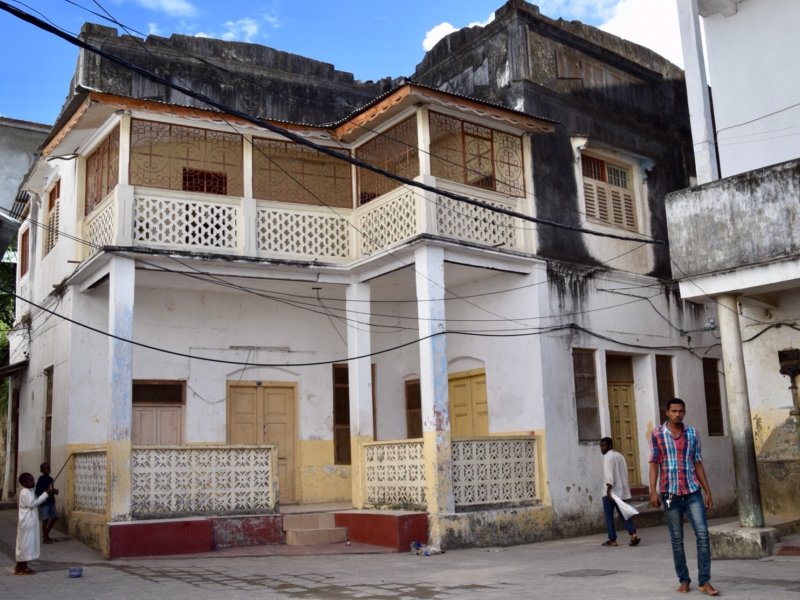
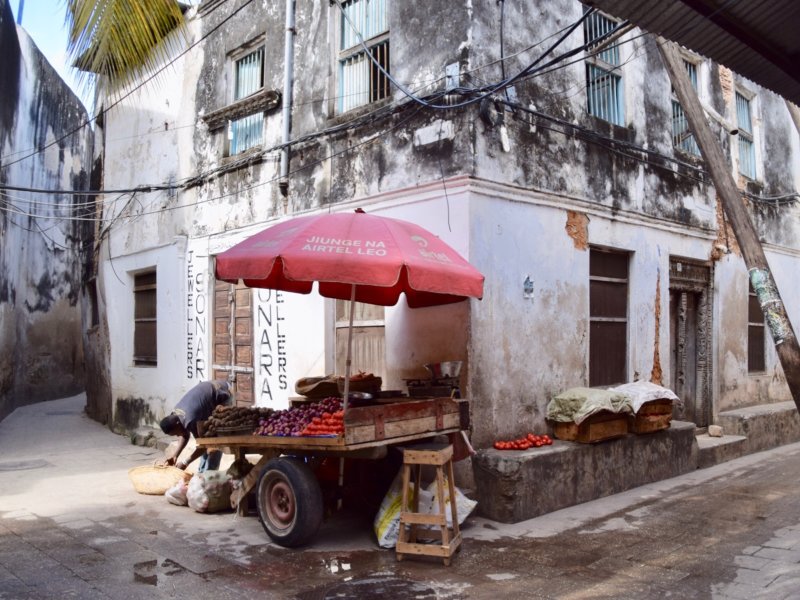
Get lost in the winding lanes of Stone Town
This atmospheric and mystical town is the cultural and historical heart of Zanzibar.The fascinating maze of winding lanes leads past numerous houses and mosques, wonderful cafes and restaurants, shops and bazaars. I loved getting off the tourist trail and just get lost in the backstreets but added some landmarks, markets and museums in this itinerary if you like more focus ;)
Tip!
Dress appropriately, 98% of the population is Muslim.
See detail page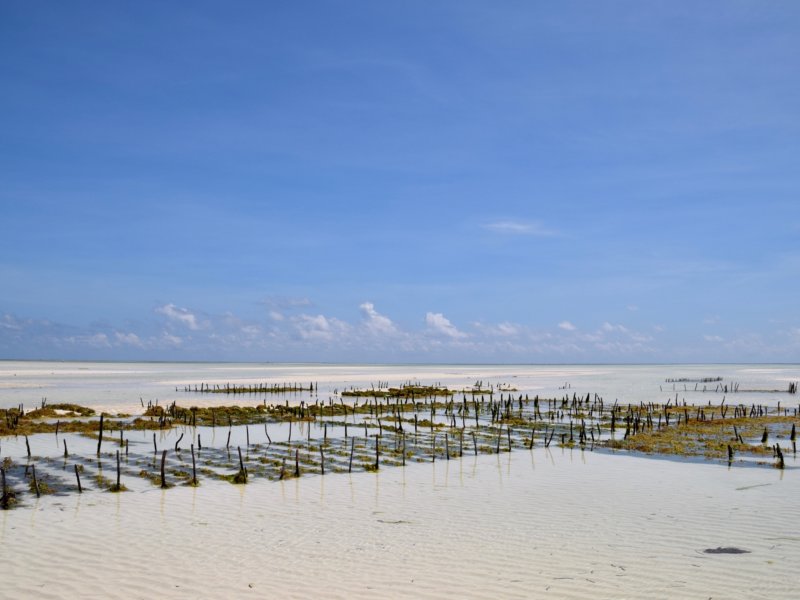
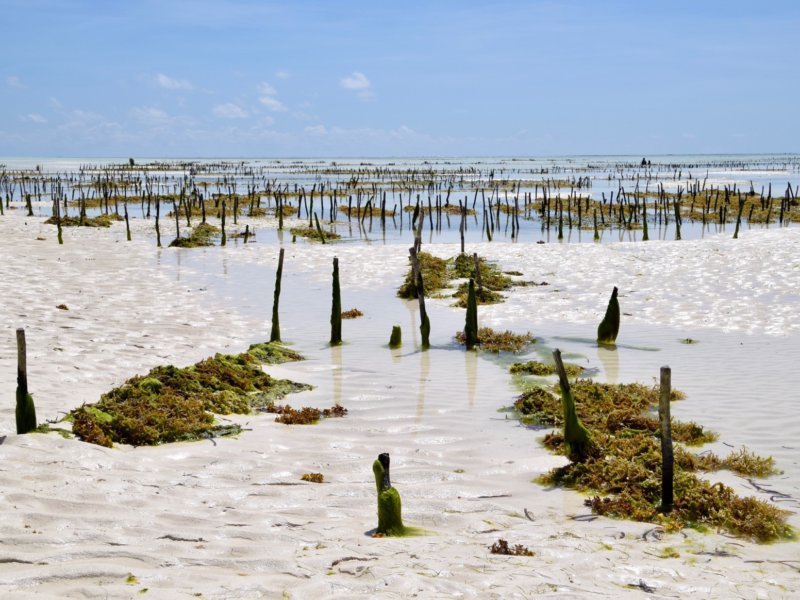
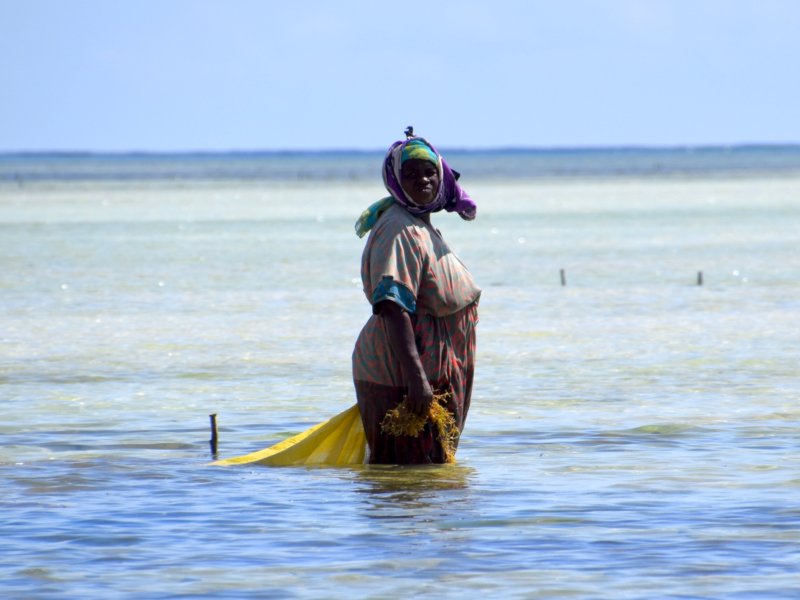
Watch the seaweed farmers on the East Coast
After tourism and spices, farming seaweed is the third biggest industry on Zanzibar. At low tide you can see farmers waist deep in sapphire water off the white beaches at the east coast of the island.
Around 15,000 women work in seaweed farming. Their livelihood is at risk though as warming sea temperatures cause massive die-offs. Despite maintaining its position as the third largest seaweed exporter in the world, many farmers in Zanzibar have abandoned this line of work as they now feel the economic impact.
Seaweed is exported to Europe, America and Asia. Food, pharmaceutical, and cosmetic industries, use seaweed extracts as gelling substances, stabilizers and emulsifiers in industrial products like perfumes, shampoos, toothpaste, medicines, and....ice cream, milk shakes, and yoghurt!! Did you know? 😉
Tip!
You can see the farms all the way from Kiwenga to Paje.
See detail page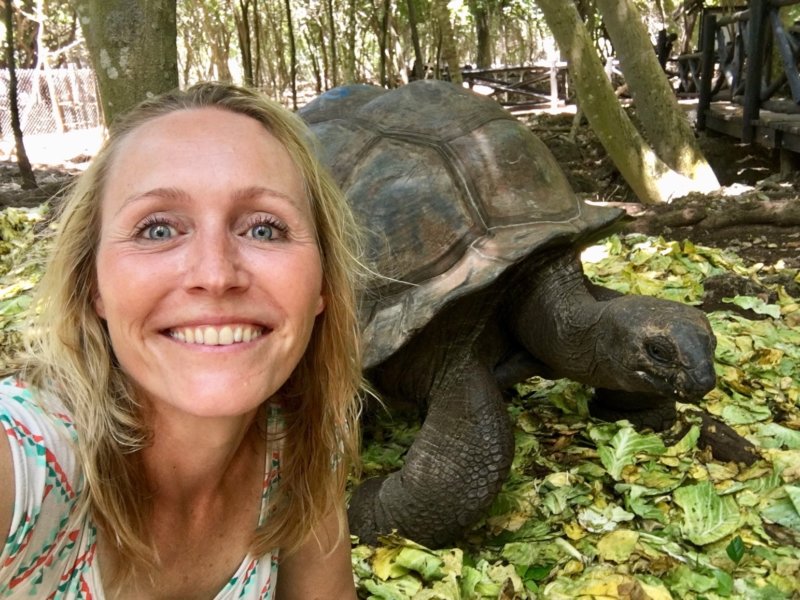
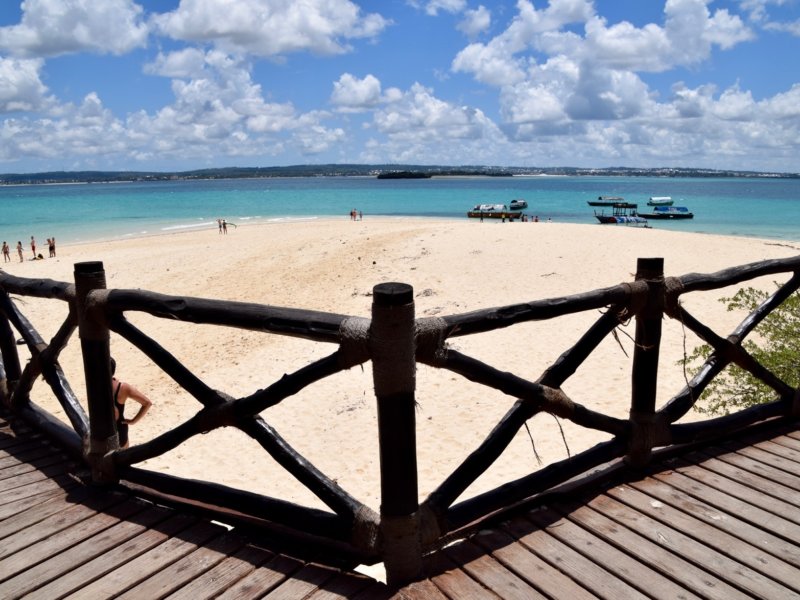
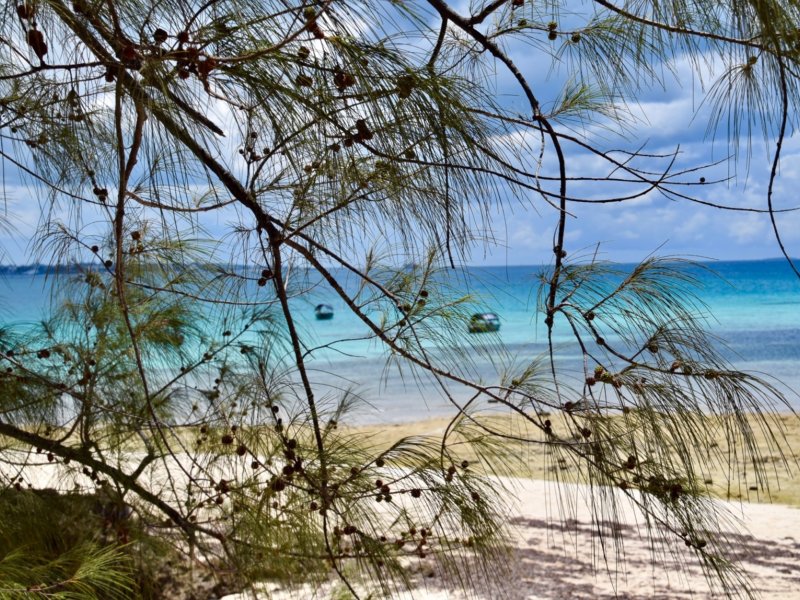
Pet giant tortoises on Changuu island
Changuu also known as Prison island is an inhabited island and only a 30 minute boat ride from Zanzibar. The island saw use to confine rebellious slaves in 1860s, but no prisoners were ever housed here instead the island became a quarantine for yellow fever cases. And Changuu island houses a hundred of endangered giant land tortoises. I love tortoises! Lucky me! I was blown away by their sizes and ages. Some of them are between 165 and 180 years old. I was told that I could approach them, pet them and even feed them, so I did!
Tip!
Bring your swimwear and sunscreen!
See detail page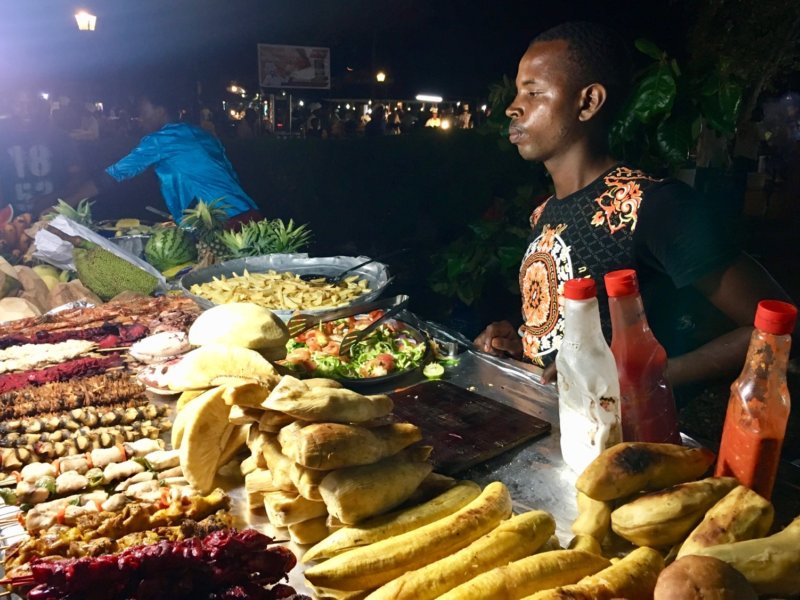
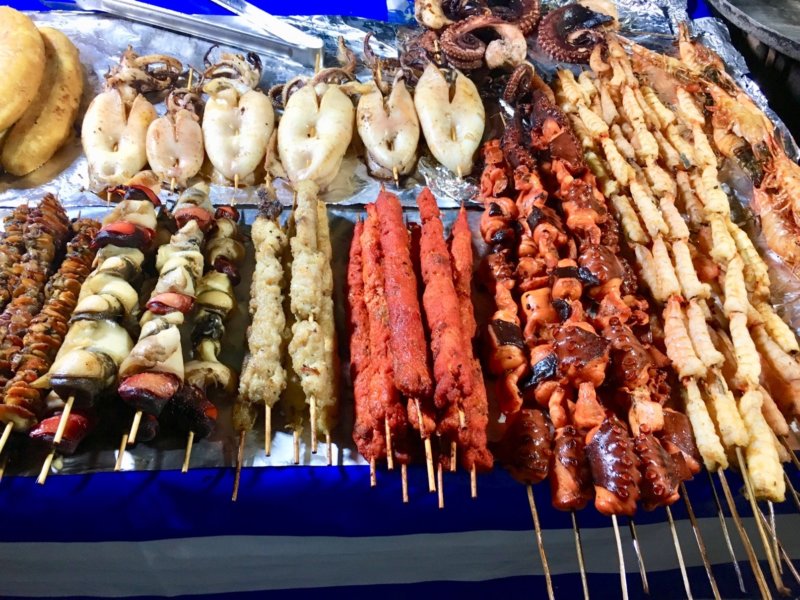
Indulge in Zanzibar food at the Night Market
To experience the best of Zanzibar’s food, head to the Night Market that happens each night in the Forodhani Gardens. Indulge in seafood, meat skewers, Zanzibar pizza (!), snacks, local beer, exotic fuits and desserts. The hawkers can be a bit pushy, but do not let that annoy you too much. The food is great!
See detail page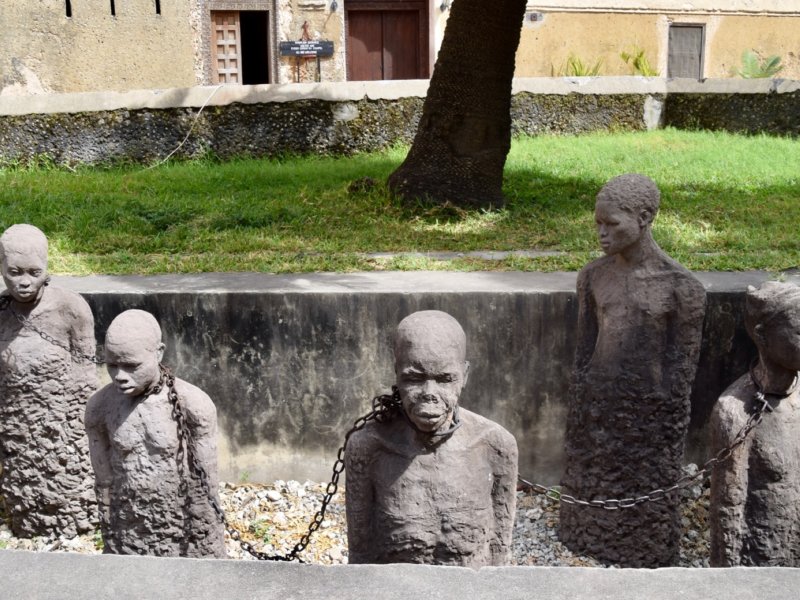
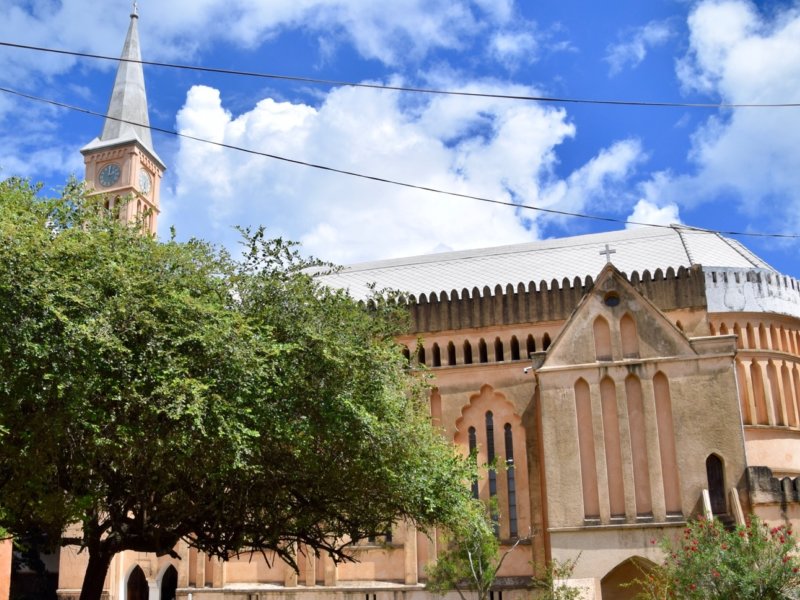
Learn more about Zanzibars past at the Old Slave Market / Christ Church
Zanzibar was once the center for the East African slave and ivory trade. At its height in the 18th and 19th centuries, some 45,000 slaves, captured on mainland Africa, were shipped from Zanzibar to Brazil, India and Arab countries. The Anglican Cathedral was built on the last permanent slave auction of East Africa to celebrate the end of slavery. In the museum on site the cruel history is told in an unbiased and factual way. It made me quiet for a while. The monument with the slaves in a pit is powerful, the chains were actually used on slaves in the 1800’s.
Tip!
Hire one of the guide that hang around the museum, they are very knowledgeable.
See detail page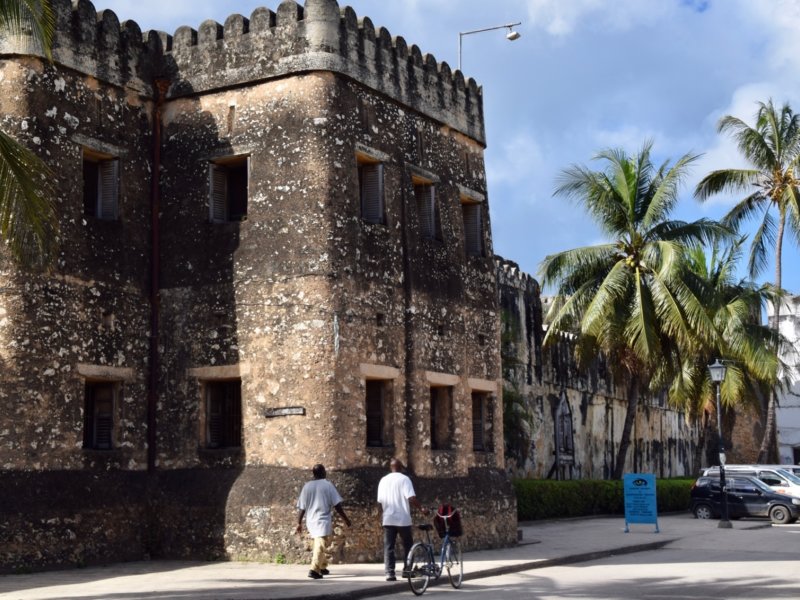
See a local show at the Arab Fort’s amphitheater
This massive, bastionned structure is the only major Arab castle still standing in East Africa. It’s quite impressive from the outside, much less from the inside. It had different uses from a prison to a tennis court and you can feel that they haven’t found the new ‘it’ yet. The current main feature is an open-air amphitheater. I had a lot of fun watching the finals of Zanzibar’s break dance competition, check for any scheduled local shows and events to enjoy the fortress in a non-touristy way.
See detail page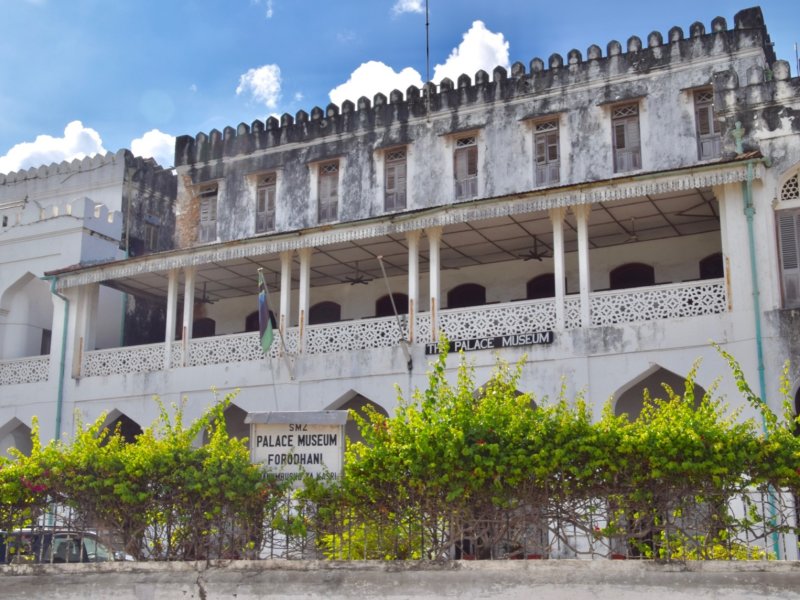
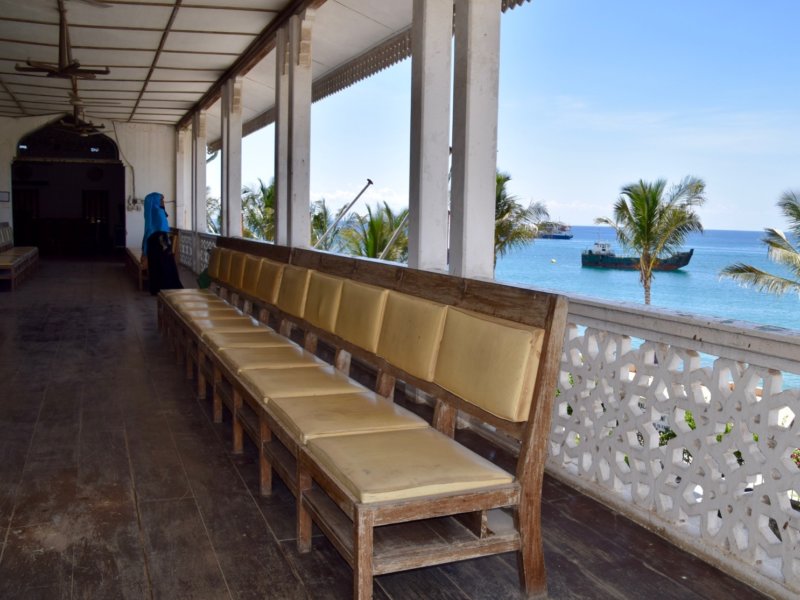
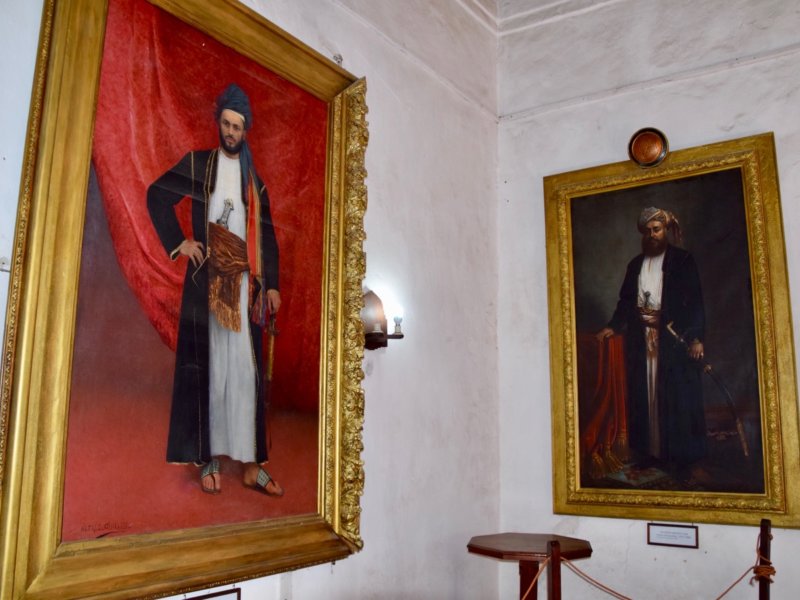
Feel like a Sultan at the Palace museum
This converted museum used to be the Sultan’s Seyyid Said’s palace and gives an interesting insight in the Zanzibari royal family in the 19th century. It contains a few valuable items Sultan's family left behind, deals with the international trade affairs of the Sultanate of Zanzibars and shows Sultans' furniture and various modern amenities that were introduced to Zanzibar under Sultan Barghash. It includes the living quarters of Sultan Khalifa II bin Harub, and his two wives, each of whom had very different tastes in furniture ;) The exibition is dusty and out-dated but nevertheless informative for an hour or so.
Tip!
Do not miss the wonderful view from the balcony.
See detail page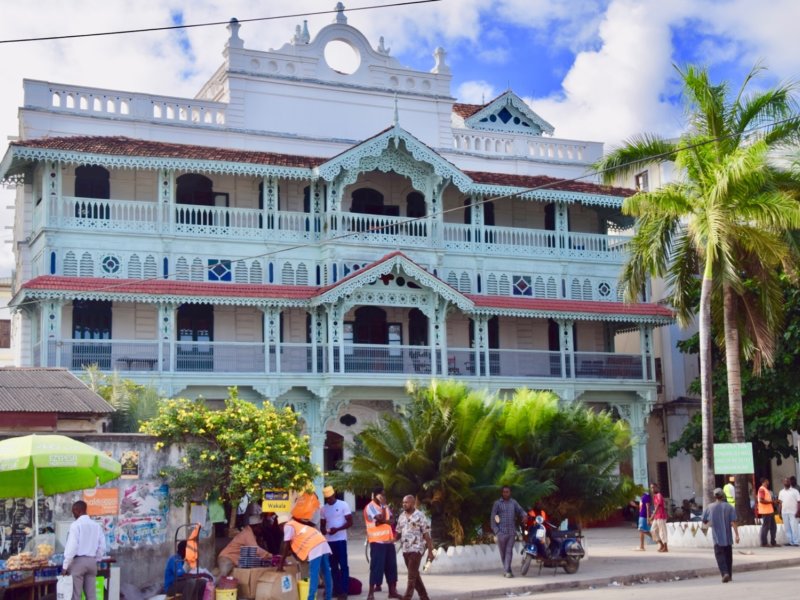
Take pictures of the pretty Old Dispensary
The prettiest building in Stown Town. Marvel at the wooded carved balconies, stained glass decorations, built with Zanzibari coral rag and limestone but covered with stucco adornments. Not more than a photo opp to be honest, there is nothing noteworthy on the inside.
See detail page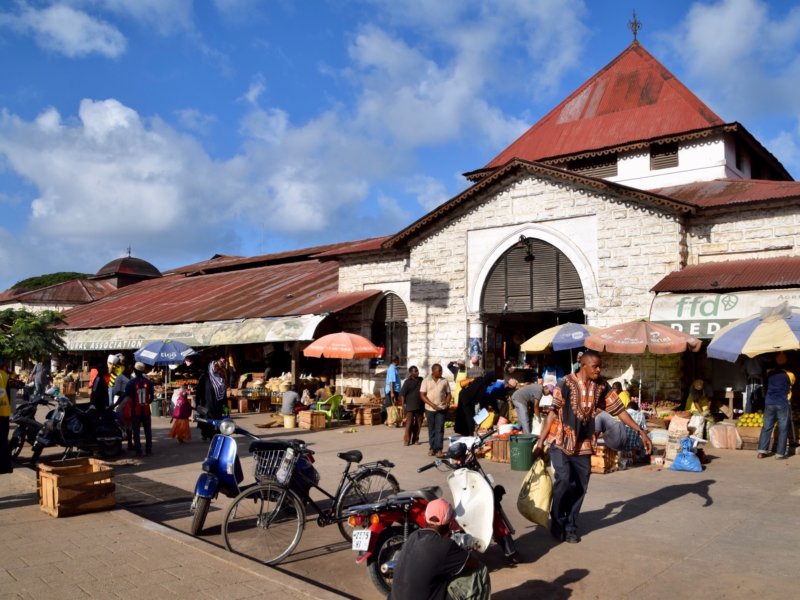

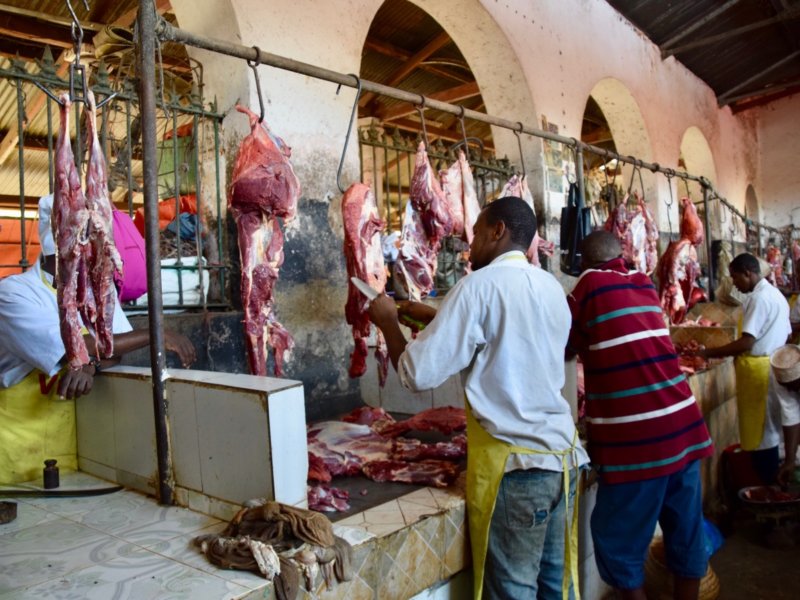
Immerse in daily island life at Darajani Bazaar
The Darajani Bazaar is the main market in Stone Town and specializes in food (seafood, meat, fruits, grains, spices), but there are also shops selling a number of different goods, from touristy curios to consumer electronics. The covered meat and fish sections are worth checking out. The colours, the smells and the way the butchers go about their cutting are something completely different from the Western world ;)
Tip!
Go early to see the wet market in full swing.
See detail page
If I could re-do it ...
I’d read up more
It’s past is so intruing: the slave trade, the scrambling for the interior Africa by explorers, the sultans, the wealth in gold and clove.
Make sure you don't miss ...
1. The Rock, a restaurant on a rock near Paje. The service is so-so though :)
2. Haunting taraab music, at various restaurants and hotels on the island.
3. Fluffy coconut bread.
